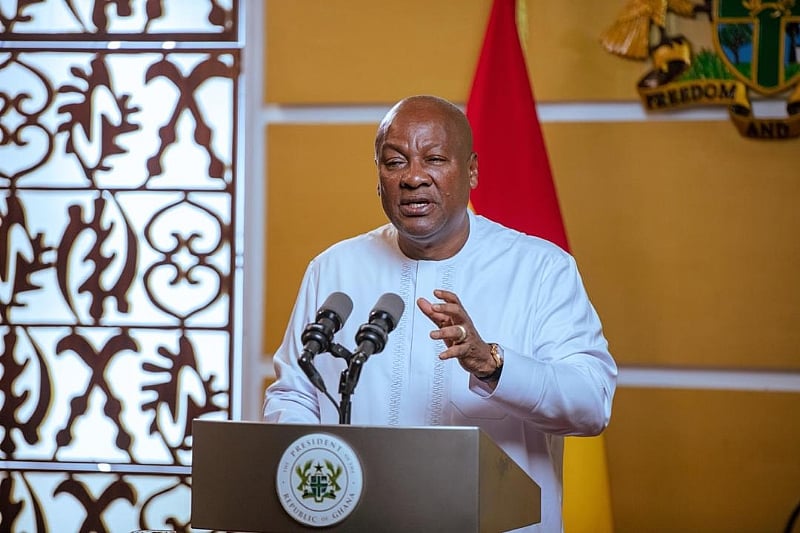President John Dramani Mahama says recommendations from the recent National Economic Dialogue are already helping to stabilise Ghana’s economy and laying a solid foundation for long-term growth.
In a national address on Wednesday marking his government’s first 120 days in office, the President credited the March 3–4 event for shaping key policy actions that are beginning to yield positive outcomes.
The dialogue, held at the Accra International Conference Centre, brought together voices from the private sector, civil society, academia, and traditional authorities to examine the country’s economic challenges and propose solutions.
“The implementation of these recommendations is already underway and is showing promising signs,” President Mahama said.
He pointed to early indicators such as a steadying currency, a downward trend in inflation, and a reduction in what he described as the excessive borrowing habits of previous administrations.
“The currency is becoming fairly stable, inflation is inching downwards, and we have reduced the excessive borrowing that had become a trademark of past governments.”
Among the reforms highlighted was the amendment of the Public Financial Management Act, 2016 (Act 921), which now incorporates a new debt rule to bring Ghana’s debt-to-GDP ratio down to 45% by 2024. It also introduces an annual primary surplus target of at least 1.5% of GDP.
The amendment enabled the establishment of an independent fiscal council tasked with ensuring compliance with these fiscal rules — a requirement met ahead of schedule under the country’s ongoing programme with the International Monetary Fund (IMF).
President Mahama also emphasised a more robust accountability framework for public financial management.
He noted that under the new rules, responsibility for fiscal indiscipline no longer rests solely with the Finance Minister but extends to all heads of government institutions involved in financial decision-making.
Beyond fiscal discipline, the dialogue also generated actionable recommendations for transforming agriculture and improving the alignment of skills training with national development goals. The President confirmed that both areas are now top policy priorities for his administration.
He reaffirmed his commitment to fulfilling key campaign promises, noting that several tax relief measures had already been implemented.
He said: “The successful repeal of the e-levy, the levy on betting winnings, and the emissions levy” were among the government’s early wins within its first 90 days.
However, he acknowledged that efforts to abolish the COVID-19 levy have been delayed due to the conditions of Ghana’s existing agreement with the IMF. That measure, he added, would be addressed as part of a broader VAT restructuring exercise set for September.
President Mahama concluded by expressing optimism that the continued rollout of the dialogue’s recommendations would put Ghana on a more stable, resilient, and inclusive path to prosperity.


